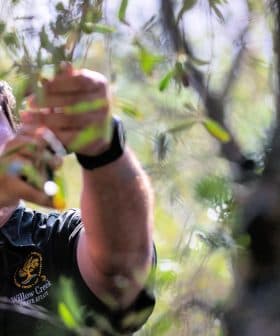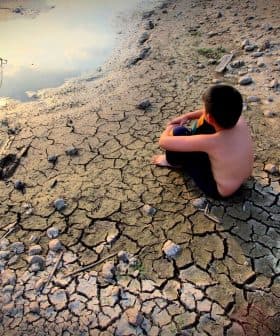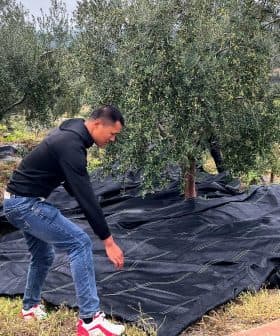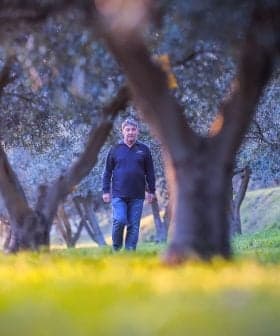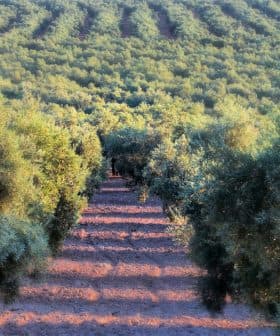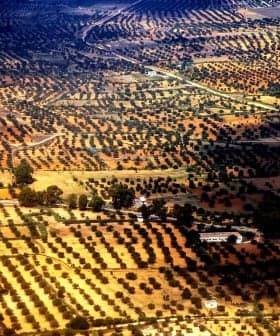Harvest Outlook Worsens in Spain
Rain is in the forecast for this week, but producers are still expecting what could be the third-lowest yield since records began.
 5.8K reads
5.8K readsSpanish olive oil production is expected to drop below one million tons due to prolonged heatwaves and drought, with farmers and producers in Andalusia predicting a yield of just 918,000 tons for the 2022/23 crop year. Rising energy costs and decreasing olive yields are putting significant financial strain on the industry, with a potential €1.7 billion in losses expected and urgent calls for support and investment in irrigation technology and water management.
For the first time in nearly a decade, Spanish olive oil production could fall below one million tons.
According to the farming cooperatives of Andalusia, the country’s most significant olive oil-producing region, farmers and producers in Spain may yield just 918,000 tons of olive oil in the 2022/23 crop year.
Last year, Spain produced about 1.3 million tons, according to the International Olive Council, slightly below the rolling five-year average of 1.37 million tons.
See Also:2022 Olive HarvestFarmers, producers and officials have blamed prolonged summer heatwaves and the unprecedented drought for the significant production slump.
In May, record high temperatures during the critical olive flowering period were the first significant setback for producers, reducing yields as blossoms desiccated on the trees.
Cooperativas Agro-alimentarias, Spain’s leading agricultural cooperative, said skyrocketing energy costs – which have risen 443 percent in the last two years – have been another blow for farmers and millers.
These costs are expected to hit new highs during the harvest season when the entire industry reaches its peak energy consumption.
The cooperative added that such costs would represent an even heavier burden for the industry as the numbers of olives set to be harvested continue to fall, impacting growers’ incomes.
They also warned that the forecast of 918,000 tons strictly depends on the weather in the next few weeks. The absence of enough rainfall to replenish irrigation infrastructure could cause production to fall further.
An official estimate on the coming harvest in Andalusia is expected soon from the regional government. Cooperativas Agro-alimentarias estimated that the autonomous community would produce a maximum of 700,000 tons of olive oil. Last year, Andalusia produced 1.15 million tons of olive oil.
According to Cristóbal Gallego Martínez, president of the Olive Oil Sectoral Council of Agro-food Cooperatives of Andalusia, “this drought is subtracting olive production each day that passes.”
Gallego confirmed that rainfed groves are practically at “zero, with no load of olives.” He added that irrigated groves, which constitute more than 33 percent of all Spanish groves, will not yield large productions as water availability for irrigation is currently restricted.
“Most of the olive trees have little water, the olive fruits are wrinkled, and some are even starting to blacken when their natural color now would be green, as this is the time when olive undergoes lipogenesis, the process during which the olive begins to transform sugars into oil,” he said.
“We are approaching the beginning of autumn, and there is little prospect of short-term rain, which makes us very pessimistic,” he continued, adding that the new campaign could become “the carbon copy of the 2014/2015 season,” the second worst on record.
However, some relief may be on the horizon. José Miguel Vinas, a meteorologist at Meteored, said rain might come in several regions of the country as Hurricane Danielle approaches Europe’s Atlantic coast.
Despite the potential for rain, officials expect current levels of production losses to lead to €1.7 billion of losses for the sector.
“Considering that 67 percent of the production sector is represented by the Andalusian agri-food cooperatives, the losses in these social economy companies would amount to €1.14 billion,” the cooperative said.
Along with the anticipated drop in table olive production, Cooperativas Agro-alimentarias said special measures are needed to support farmers. They called on authorities to cut taxes on fuel, electricity, fertilizers and phytosanitary projects.
The cooperative also emphasized the increasingly urgent need to upgrade irrigation technology and develop a water strategy.
Share this article


